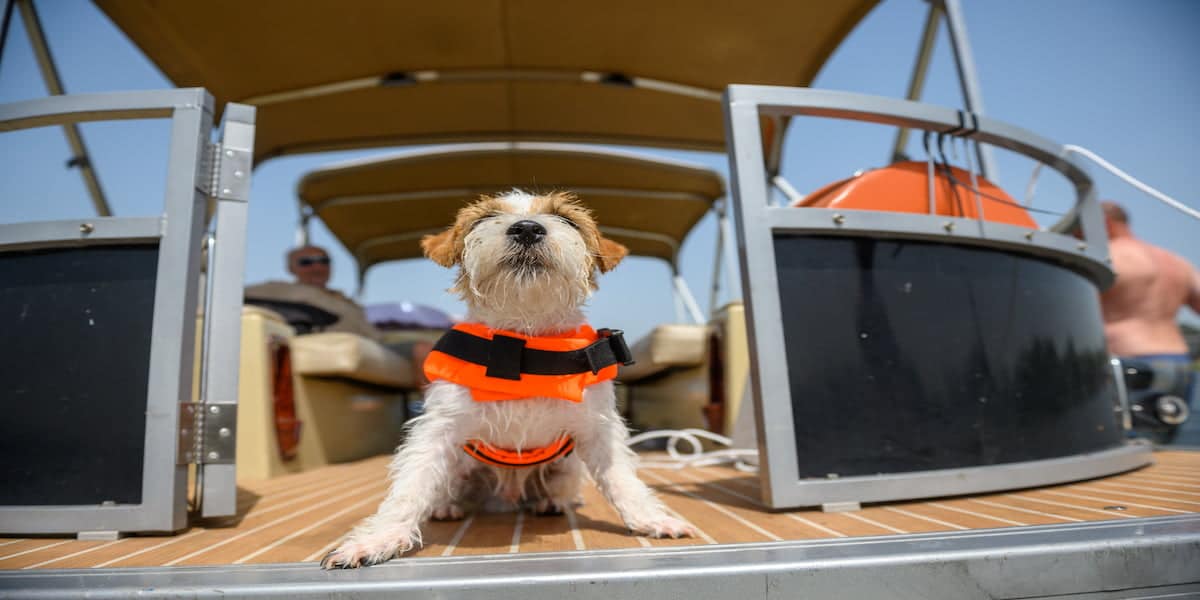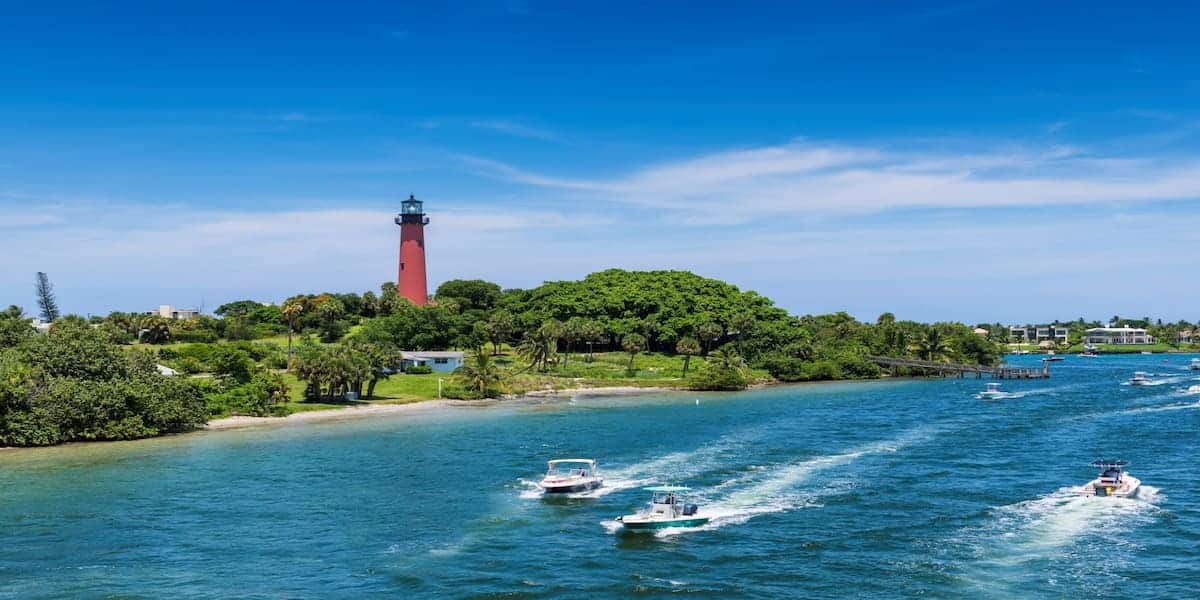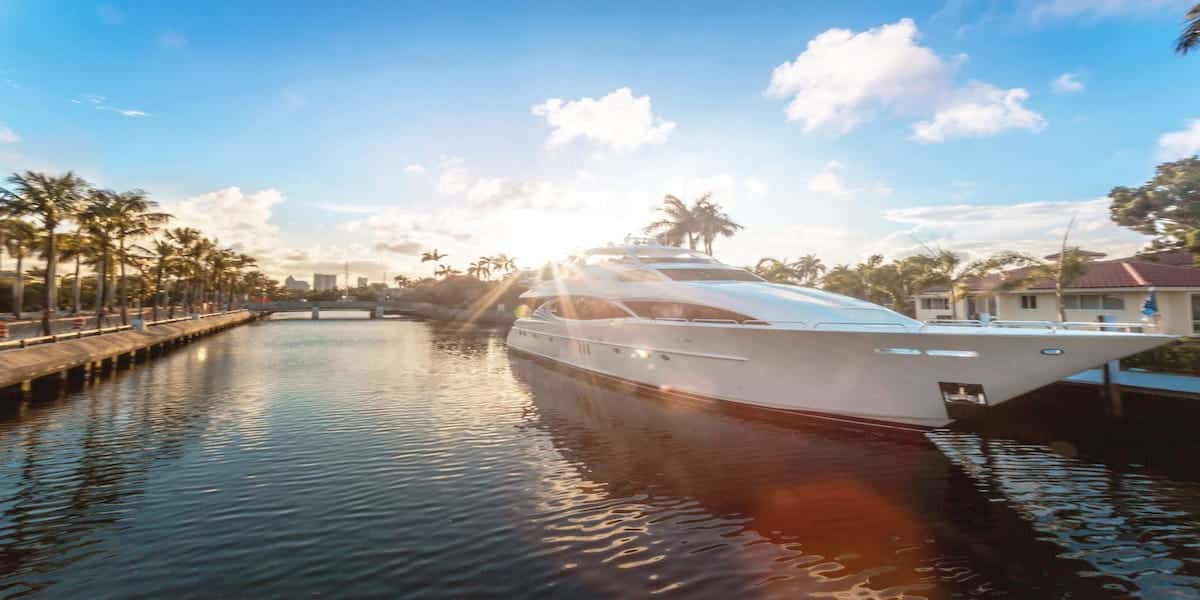
Boating is one of Florida’s most popular pastimes, with its beautiful coastline, lakes, and rivers offering endless opportunities for fun on the water. But safety must always come first, which is why Florida has clear laws about life jackets. Understanding Florida life jacket laws is essential to avoid penalties and ensure a safe boating experience for you, your passengers, and other boaters.
In this comprehensive guide, we’ll cover the key rules surrounding life jacket use in Florida, explain the specific requirements for personal watercraft (PWCs), and highlight the legal obligations for water sports enthusiasts. We’ll also answer a common question: In Florida what is the legal requirement for passengers on a PWC? Let’s dive in to help you stay compliant and safe on Florida’s waters.
Florida Life Jacket Laws: Key Statutes and Regulations
Life jackets, also known as personal flotation devices (PFDs), are essential for keeping boaters safe on Florida’s waters. With Florida being a popular destination for boating, fishing, and other water sports, it’s crucial to know the state’s life jacket laws to prevent accidents and avoid fines. Let’s break down these laws to help you understand what’s required for a safe boating experience.
Why Are Life Jackets So Important?
Life jackets save lives. Every year, accidents happen on the water, and wearing a life jacket can be the difference between life and death. According to the Florida Fish and Wildlife Conservation Commission (FWC), a significant number of boating fatalities involve drowning, and most victims were not wearing life jackets.
Key Benefits of Wearing a Life Jacket:
- Prevents Drowning: A life jacket keeps your head above water, even if you’re unconscious.
- Increases Visibility: Brightly colored jackets make it easier for rescuers to spot you.
- Keeps You Warm: A PFD can help prevent hypothermia in cold water.
- Gives You Confidence: Wearing a life jacket allows you to focus on having fun rather than worrying about safety.

Florida Life Jacket Laws: The Basics
Florida has specific laws to ensure the safety of everyone on board. These laws are defined under various sections of the Florida Statutes and must be followed by all boaters.
Statutory Requirement:
- Section 327.50(1)(a), Florida Statutes: Every boat, regardless of its size, must have at least one U.S. Coast Guard-approved, wearable life jacket for each person on board.
- Additional Requirement for Boats 16 Feet or Longer: Boats that are 16 feet or longer must also have a throwable Type IV PFD (like a life ring or cushion) on board.
Key Points to Remember
Understanding the details of the law can help you avoid fines and keep everyone safe.
- Every Boat Needs a Life Jacket for Each Passenger:
- All vessels, from kayaks to large yachts, must have enough life jackets for every person on board.
- Life jackets must be the right size for each person, especially children.
- Life Jackets Must Be Easily Accessible:
- They can’t be buried under other equipment. In an emergency, you should be able to grab a life jacket quickly.
- Life jackets must be kept in good, serviceable condition. If they are damaged or too worn out, they won’t count as meeting the legal requirement.
- Throwable Type IV PFD for Larger Boats:
- Boats 16 feet or longer must also carry a throwable device, such as a life ring or a buoyant cushion, which can be used to help someone in the water.
- These throwable devices are not replacements for wearable life jackets but are an additional safety measure.
Frequently Asked Questions About Florida Life Jacket Laws
1. Who is required to wear a life jacket in Florida?
- Children under 6 years old must wear a life jacket at all times on boats less than 26 feet in length while the boat is moving.
- For adults, it’s not required to wear a life jacket at all times, but they must have one easily accessible.
- Everyone on a personal watercraft (PWC), like a Jet Ski, must wear a life jacket, regardless of age.
2. What types of life jackets are approved in Florida?
Florida law requires life jackets to be U.S. Coast Guard-approved and properly fitted for the user. There are different types of life jackets for various activities:
- Type I: For rough waters where rescue may be delayed; best for offshore boating.
- Type II: Good for calm, inland waters where quick rescue is likely.
- Type III: Best for water sports like kayaking and wakeboarding.
- Type IV: Throwable devices like cushions or rings, not meant to be worn.
- Type V: Special-use devices, such as inflatable life jackets or those designed for specific activities.
3. Can I use an inflatable life jacket on my boat?
Yes, inflatable life jackets are allowed but cannot be used for children under 16 years old or on personal watercraft (PWCs). They must be U.S. Coast Guard-approved and properly maintained.
4. What happens if I don’t comply with these laws?
Failing to have the required life jackets on board can result in fines and penalties. Law enforcement officers regularly patrol Florida’s waters and can issue citations if your boat is not in compliance.

How to Properly Maintain Your Life Jackets
It’s not enough to just have life jackets on board; they need to be in good condition. Here’s how to make sure your PFDs are ready to use:
- Check for Damage: Look for tears, broken straps, or any signs of wear. If damaged, replace them immediately.
- Test Buoyancy: Occasionally test your life jackets in shallow water to ensure they still provide the necessary buoyancy.
- Store Properly: Keep them in a dry, cool place to prevent mold and mildew. Don’t leave them in direct sunlight for long periods, as this can weaken the material.
- Review the Expiration Date: Some inflatable life jackets have expiration dates for their CO2 cartridges, so check regularly.
What Should You Do If You’re Stopped by Law Enforcement?
If you’re stopped by the FWC or another law enforcement agency while boating, they may conduct a safety check to ensure compliance with life jacket laws.
Here’s What They Might Ask For:
- A life jacket for every passenger on board.
- A throwable PFD if your boat is 16 feet or longer.
- Proper registration and safety equipment, such as fire extinguishers and flares.
If you’re missing required equipment, you could face fines, so it’s best to do a safety check before leaving the dock.
Staying compliant with Florida life jacket laws is not just about avoiding fines—it’s about keeping yourself, your family, and friends safe on the water. Life jackets save lives, and making sure you have the right type, size, and number on board is essential for a fun and safe boating experience.
Remember:
- Always carry enough life jackets for everyone on board.
- Make sure children under 6 and anyone on a PWC wears a life jacket at all times.
- Regularly check the condition of your PFDs to ensure they are ready for use.
If you have more questions about boating safety or legal issues related to boating accidents, contact William W. Price P.A. for legal advice. Our team is here to help you navigate Florida’s boating laws and protect your rights.
Who Is Required to Wear a Life Jacket in Florida?
In Florida, life jacket laws are in place to protect everyone, especially children and other vulnerable passengers. These regulations are essential for preventing accidents and ensuring safety on the water. Let’s break down exactly who needs to wear a life jacket according to Florida law.
Statutory Requirement:
- Section 327.50(1)(b), Florida Statutes: This law states that children under the age of 6 must wear a U.S. Coast Guard-approved life jacket (Type I, II, or III) whenever they are on vessels less than 26 feet in length while the boat is moving.
Key Points:
- Children under 6 years old must wear a life jacket at all times when the boat is underway (i.e., moving). This rule applies to both motorized and non-motorized boats.
- Life jackets need to be properly fitted to the child’s size. A loose or oversized jacket can slip off and fail to provide the necessary protection.
- Life jackets must be in good condition, meaning no rips, tears, or broken straps. Regularly inspect them to ensure they are fully functional.
Frequently Asked Questions:
- Does my child need to wear a life jacket if the boat is anchored or drifting?
- No, the law requires children under 6 to wear a life jacket only when the boat is actively moving. However, it is still a good safety practice to keep the life jacket on whenever the child is near or on the water.
- Can my child wear an inflatable life jacket?
- No, inflatable life jackets are not recommended for young children. They are not as reliable as foam life jackets in keeping a child’s head above water, especially in emergencies.
- What should I do if my child refuses to wear a life jacket?
- Make it fun! Allow your child to choose a life jacket in their favorite color or design. Emphasize that it’s a necessary part of boating, just like wearing a seatbelt in a car.
In Florida What Is the Legal Requirement for Passengers on a PWC?
Personal watercraft (PWCs), such as Jet Skis and WaveRunners, offer an exciting way to enjoy Florida’s waterways. However, they can be risky, which is why Florida has strict safety laws for those operating and riding on PWCs.
Statutory Requirement:
- Section 327.39(1), Florida Statutes: This law requires that every person on a PWC, regardless of their age, must wear a U.S. Coast Guard-approved life jacket (Type I, II, III, or V).
Key Points:
- All riders, including passengers, must wear a life jacket at all times while on a PWC, whether it’s moving or not.
- Inflatable life jackets are not allowed on PWCs. Riders must wear solid or hybrid models that provide dependable buoyancy.
- The PWC must have a functioning engine cutoff switch, and the operator must attach the lanyard to their person. This prevents the PWC from continuing to run if the operator falls off.
Frequently Asked Questions:
- Do passengers need to wear a life jacket on a PWC?
- Yes, all passengers, no matter their age, must wear a properly fitted life jacket when on a PWC.
- Can I ride a Jet Ski without a life jacket if I’m a strong swimmer?
- No, Florida law requires life jackets for everyone on a PWC, regardless of swimming ability. Safety is a priority due to the high speeds and risks associated with PWCs.
- What happens if I’m caught without a life jacket on a PWC?
- You could face fines and penalties. Florida’s Fish and Wildlife Conservation Commission (FWC) actively enforces these regulations.
Life Jacket Requirements for Towed Activities (Water Skiing, Tubing, Wakeboarding)
If you enjoy activities like water skiing, tubing, or wakeboarding, it’s important to follow Florida’s life jacket laws. These activities carry higher risks, so safety rules are strictly enforced.
Statutory Requirement:
- Section 327.37(2)(b), Florida Statutes: This law mandates that anyone participating in water skiing, parasailing, aquaplaning, or other towed activities must wear a non-inflatable, U.S. Coast Guard-approved life jacket (Type I, II, III, or V).
Key Points:
- All participants in water sports must wear a life jacket while being towed behind a boat.
- Inflatable life jackets are not permitted for these activities. Solid foam or hybrid models are required to ensure proper buoyancy in case of sudden falls or impacts.
- Properly fitting life jackets are crucial. If the jacket is too loose, it may slip off during high-speed water activities.
Frequently Asked Questions:
- Do I need to wear a life jacket if I’m on a towable float or tube?
- Yes, anyone being towed behind a boat must wear a life jacket, even if they’re just relaxing on a tube. It’s required by law and helps prevent serious injuries.
- Can I use an inflatable life jacket for water skiing?
- No, inflatable life jackets are not allowed for water sports where sudden falls are common. You must wear a solid life jacket that stays secure during impacts.
- What about passengers on the boat? Do they need life jackets while towing skiers?
- While passengers on the boat are not legally required to wear life jackets, it is highly recommended for their safety, especially in choppy waters or during high-speed maneuvers.
Why Compliance with Florida Life Jacket Laws Is Crucial
Wearing a life jacket can literally save your life. According to the Florida Fish and Wildlife Conservation Commission (FWC), many boating fatalities in Florida involve drowning, and 80% of drowning victims were not wearing a life jacket at the time of the accident. These laws are not just about avoiding fines—they’re about saving lives.
Common Violations to Avoid:
- Not having enough life jackets on board for all passengers.
- Using ill-fitting life jackets that can slip off in the water.
- Not wearing a life jacket on PWCs or during water sports, where the risk of falling into the water is high.
Penalties for Failing to Comply with Life Jacket Laws
Ignoring Florida’s life jacket laws can lead to fines and penalties.
Statutory Reference:
- Section 327.73, Florida Statutes: Violations of boating safety regulations can result in non-criminal infractions, with fines varying by county.
Key Points:
- Fines can be issued for not having the correct number of life jackets on board or for not following the rules regarding PWCs and towed activities.
- Additional penalties may apply if you fail to comply during water sports or if you don’t have the right type of life jacket for your passengers.
- The Florida Fish and Wildlife Conservation Commission actively enforces these laws to keep everyone safe.
By understanding and following these rules, you can ensure a safe and enjoyable boating experience in Florida’s beautiful waters.
Boating Safely and Legally in Florida
Understanding and following Florida life jacket laws is vital to enjoying a safe day on the water. Whether you’re boating, riding a PWC, or enjoying water sports, using the right type of life jacket can save lives.
If you have questions about Florida’s boating regulations or have been involved in a boating accident, contact William W. Price P.A. for legal advice. Our experienced attorneys can help you navigate complex liability cases and protect your rights.
Stay safe, follow the rules, and enjoy the beauty of Florida’s waters responsibly!

